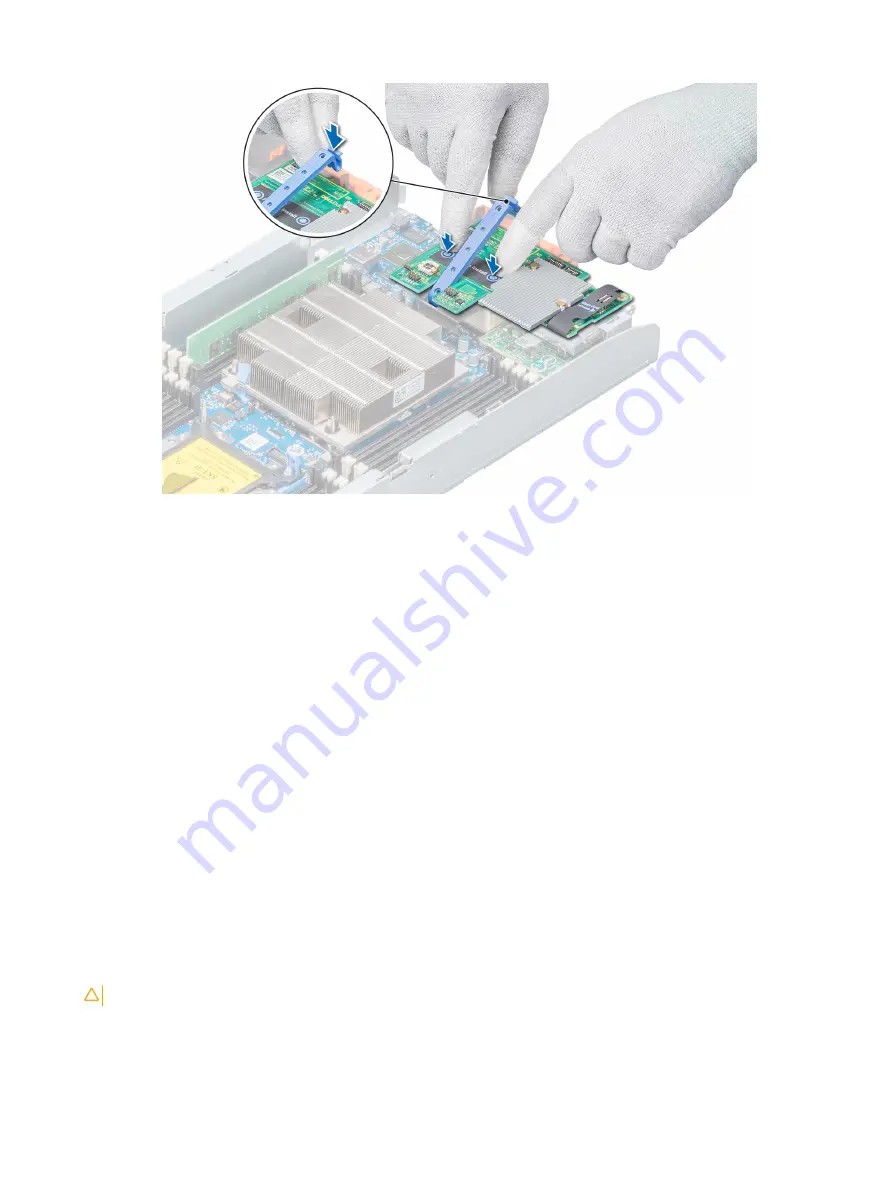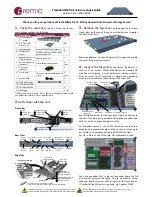
Figure 41. Installing the PCIe mezzanine card
Next step
Follow the procedure listed in
After working inside your system
Storage controller card
Removing the storage controller card
Prerequisites
1
Follow the safety guidelines listed in
2
Follow the procedure listed in
Before working inside your system
.
3
Remove the following:
a
b
c
Steps
1
Using the Phillips #2 screwdriver, loosen the retention screws on the drive cable connector and lift it away from the storage controller
card.
CAUTION:
To prevent damage to the storage controller card, you must hold the card only by its edges.
2
Lift the storage controller card away from the system.
84
Installing and removing system components
















































